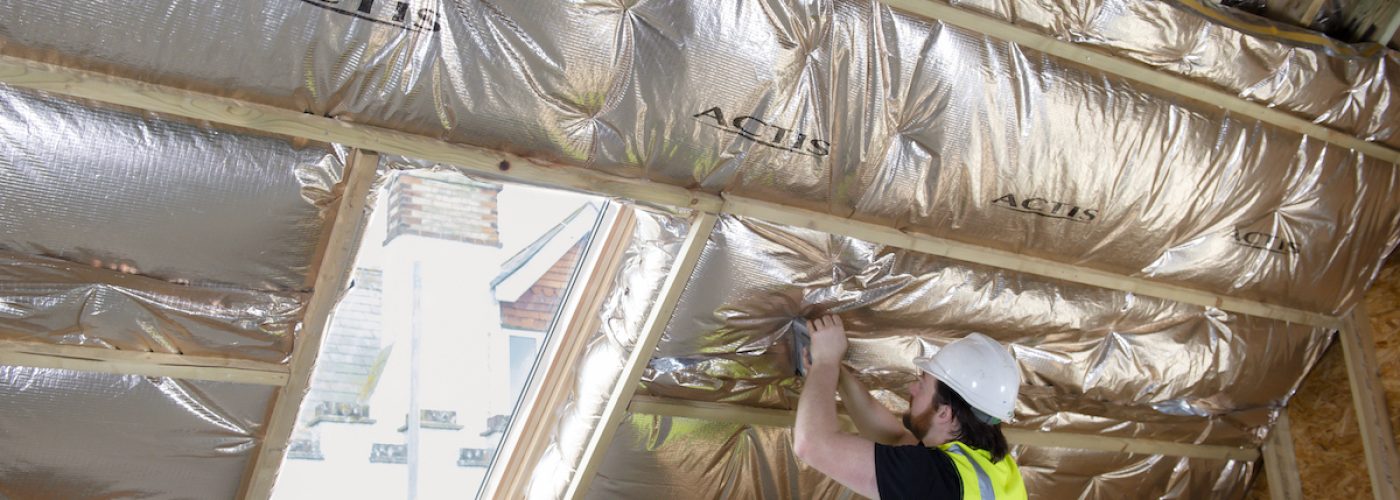With the Met Office issuing a yellow warning as temperatures are predicted to reach 30 degrees in parts of England this weekend, insulation specialist Actis is alerting specifiers to the role insulation has to play in helping mitigate the effects of rising global temperatures.
And with Part O of the building regulations obliging architects to limit unwanted solar gains and provide a way to remove heat from residential dwellings, Actis stresses that while some insulation products can make homes unbearably hot in the summer, reflective alternatives also act as coolants – helping protect the health and comfort of the occupants.
And its latest product – two-in-one Eolis HC – launched last month, joins its well-established Hybrid range in helping buildings stay cool.
The technical experts behind the creation of the new product, a reflective insulation with an integrated vapour barrier created from Actis’ revolutionary Triplex technology, explain that the reflective films from which it is created reflect 90% of infrared radiation.
Mark Cooper, UK and Ireland sales manager at Actis, said: “”As we know, some forms of insulation can make houses blisteringly hot in the summer. Not so with our products, which are designed to help keep houses cool in summer as well as warm in winter. Using reflective insulation alone is not the answer to addressing the impact of climate change, but it will mitigate some of the effects by enabling houses to remain at a pleasant temperature.
“No form of insulation can address the significant effects of solar gain through windows though. That needs to be addressed by judicious use of curtains or siting the windows in strategic positions – a job for the architect.”
The Triplex technology on which Eolis HC is based is created from a number of layers of reflective films, each separated by a thin layer of fibre, trapping air between each section, boosting thermal performance.
A new colour-coded alert system was launched last week in response to more frequent heatwaves sparked by climate change. Run by the UK Health Security Agency (UKHS)A and the Met Office, it is aimed at reducing illness and deaths among vulnerable people.
As well as the current yellow alert, amber means the impact could affect the wider population and is likely to be felt across the whole health service, while red means a significant risk to life, even for healthy people, and a severe impact expected across all sectors.





